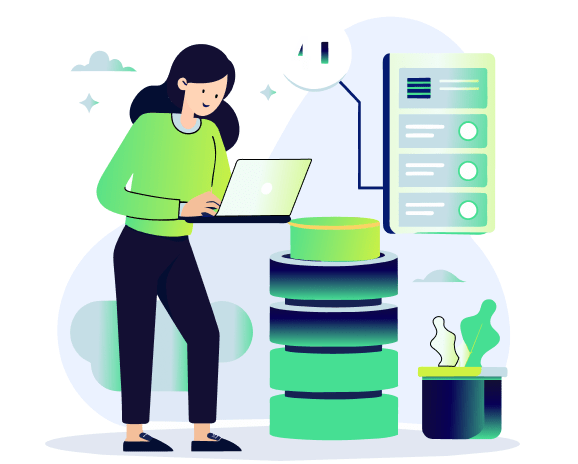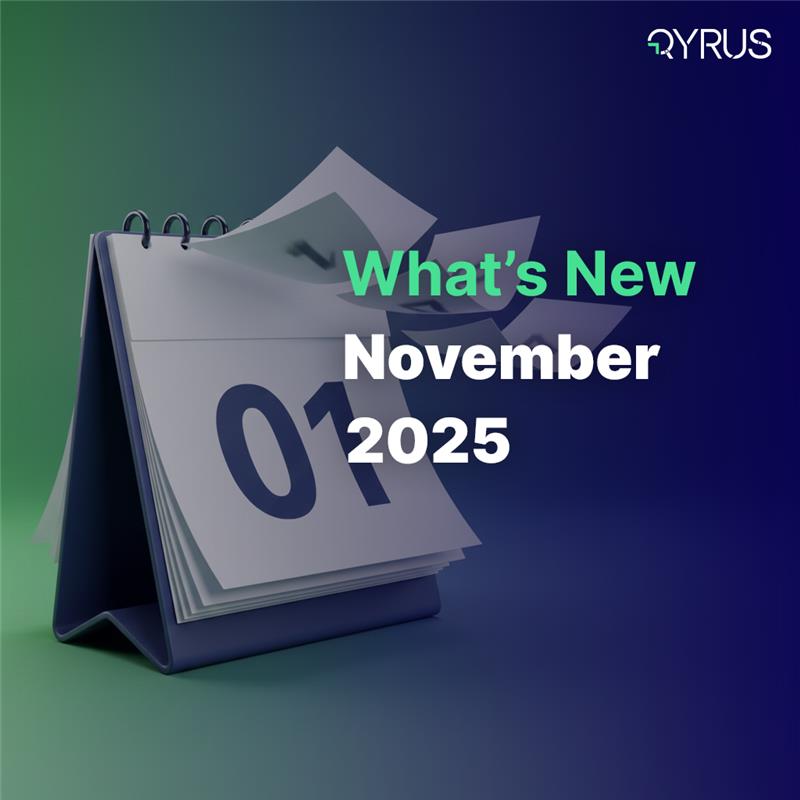Zero Complexity API Testing (Part III): Future of API Testing with Qyrus

Welcome to the third part of Zero Complexity API Testing!
We hope you had a chance to read the Part I and Part II. If not, you can read it here:
Zero Complexity API Testing (Part I): Why API Test Services Should Be Priority #1
Zero Complexity API Testing (Part II): Breaking Down Barriers with AI in API Testing
A Quick Recap:
The “Zero Complexity API Testing” is a three-part blog series that highlights the vital importance of API testing, breaks down barriers with AI, and unlocks new possibilities in the future of API Testing.
We all have questions about API testing automation. Some of the basics, like “What is API testing process?” or “Can you QA test on APIs?” are readily available off the internet. This blog series dives much deeper into the nuances of API testing with the help of a real-life scenario.
In Zero Complexity API Testing—Part I, we covered the critical role of API testing and the challenges faced by UI testers moving to API testing. We saw how Emily, a lead tester at a rapidly growing e-commerce company, faced an API glitch that caused frustration and confusion among the customers. In spite of knowing what the API testing process is, Emily chose to make it an optional process, leading to a panic situation.
In Part II, we discussed how Emily’s team could have avoided the above situation with Qyrus’ codeless testing capabilities for APIs. We saw how Qyrus simplified the testing journey by creation and execution of API tests, making them accessible to non-technical testers. We also covered AI in API testing and Qyrus’ support for codeless assertions, API specification imports, data-driven testing, API chaining, and AI-assisted assertions.
In Part III (this blog), we’ll discuss the future of API testing with Qyrus.
With Qyrus, Emily’s team transformed their approach to API testing. The simplicity and power of Qyrus allowed them to focus on improving the overall quality of their e-commerce platform. They were no longer worried about the technical complexities or time-consuming setups. Instead, they could confidently test their APIs, knowing that Qyrus had their back on the testing journey.
Empowering Teams with AI and Advanced Features
The AI-assisted assertions and performance testing capabilities of Qyrus empowered Emily’s team to achieve more in less time. They could ensure that their APIs were functional, reliable, and performant without getting bogged down in the technical details. The support for multiple API types and the Qyrus API Discovery Chrome plugin further enhanced their testing capabilities, making Qyrus an indispensable tool in their testing journey.
Unlocking the Future of Software Testing with New Possibilities
Qyrus opened up a world of possibilities for Emily’s team:
- Enhanced Test Coverage: With codeless testing and AI-assisted assertions, Emily’s team could quickly create comprehensive test cases that covered all aspects of their APIs. This improved their test coverage and reduced the risk of critical bugs slipping into production.
A quick read that may interest you: Redefining Test Coverage with AI and Machine Learning - Scalable Performance Testing: Leveraging the elasticity of the cloud, Qyrus enabled Emily’s team to run large-scale performance tests that simulated thousands of concurrent users. This ensured that their APIs could handle high traffic and maintained optimal performance under load.
Read now: Best Way to Capture the Performance Metrics of Your API Testing - Efficient Test Maintenance: By importing API specifications and supporting data-driven testing, Qyrus simplified the process of maintaining test cases as APIs evolved. Emily’s team could easily update their tests to reflect changes in the API, ensuring that their test suite remained up-to-date and relevant.
- Seamless Integration: Qyrus’s ability to support multiple API types and integrate with existing tools made it easy for Emily’s team to incorporate API testing into their existing workflows. This seamless integration reduced the overhead of managing separate testing tools and allowed for a more streamlined testing process.
- Real-World Simulation: With API chaining and data plumbing, Qyrus allowed Emily’s team to create realistic test scenarios that mirrored real-world interactions. This ensured that their tests accurately reflected how users interacted with their platform, providing greater confidence in the reliability of their APIs.
Do you relate to Emily’s story? Are you facing similar challenges with API testing in your organization? Just like Emily, you can transform your API testing journey with Qyrus.
API testing is crucial for ensuring the functionality and reliability of modern software applications. Traditional API testing tools can be complex and time-consuming, but Qyrus simplifies the process with its codeless approach, AI-assisted assertions, and robust features. By making API testing accessible to semi-technical testers, Qyrus empowers more teams to embrace the power of API testing and deliver high-quality software.
An interesting eBook that may be relevant to you: How Artificial Intelligence is Shaping the QA and Testing Space.
Experience the future of software testing with Qyrus and elevate your testing capabilities to new heights. With Qyrus, API testing becomes a seamless, efficient, and integral part of your development process, ensuring that your software is always reliable and robust. Try Qyrus today and see the difference for yourself.





